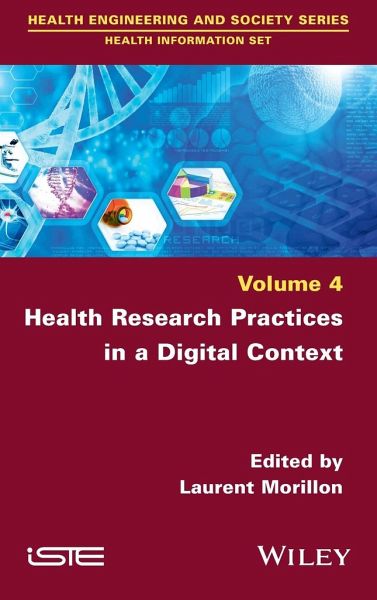
Health Research Practices in a Digital Context
Versandkostenfrei!
Versandfertig in über 4 Wochen
158,99 €
inkl. MwSt.
Weitere Ausgaben:

PAYBACK Punkte
79 °P sammeln!
The current "generalized digitization" of society is influencing the health environment, healthcare organizations as well as actors. In this context, human and social sciences deconstruct, nuance and sometimes even challenge certain preconceived ideas and/or dominant discourses. In this book, researchers of four nationalities and three different disciplines have agreed to open the "black box" of their work. They display their scientific practices from the perspective of epistemology, ethics and methodology. They present and analyze their values and postulates but, also, what may have influence...
The current "generalized digitization" of society is influencing the health environment, healthcare organizations as well as actors. In this context, human and social sciences deconstruct, nuance and sometimes even challenge certain preconceived ideas and/or dominant discourses. In this book, researchers of four nationalities and three different disciplines have agreed to open the "black box" of their work. They display their scientific practices from the perspective of epistemology, ethics and methodology. They present and analyze their values and postulates but, also, what may have influenced the project, the definition of the object and objectives, as well as their approaches. In a contextual way, the first part presents some changes in environments and infocommunicational practices related to digital health. The second part opens space to reflect on ethics and deontology. Finally, postulating that scientific fact is not an essence but the result of a process, the last part discusses the methods implemented, which may be different from those initially envisaged. This book is dedicated to the researchers and postgraduate students in the human and social sciences as well as the health practitioners likely to collaborate with them.




